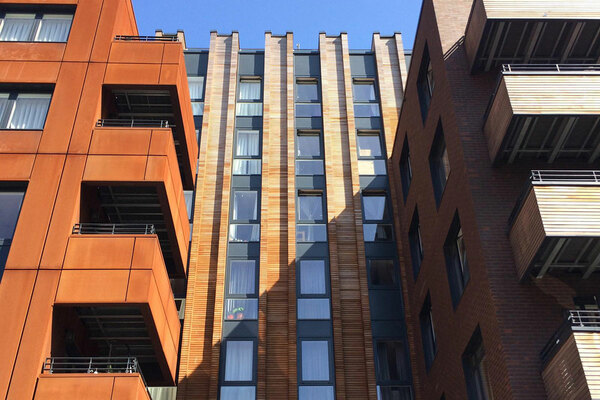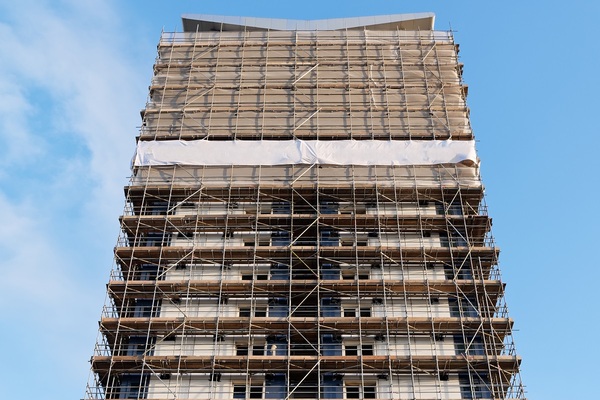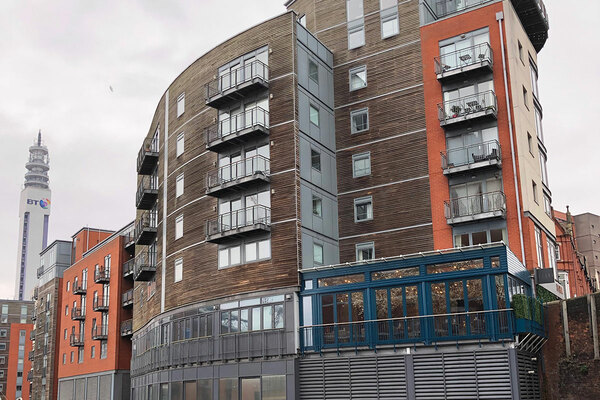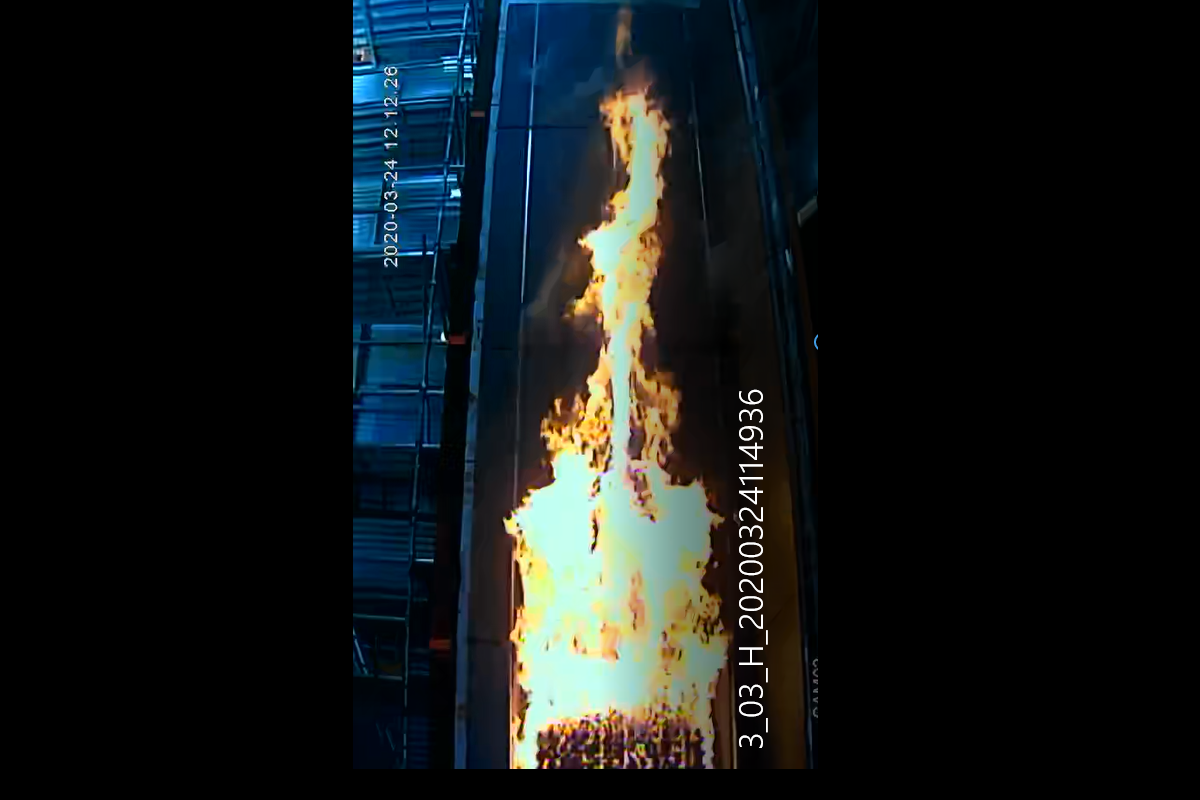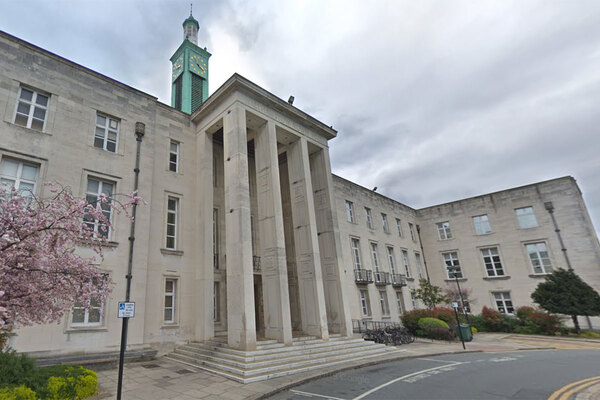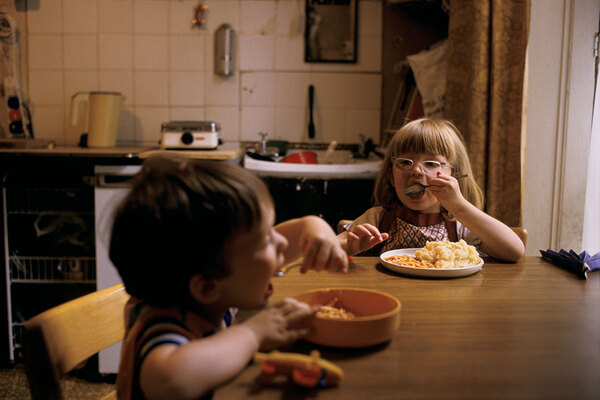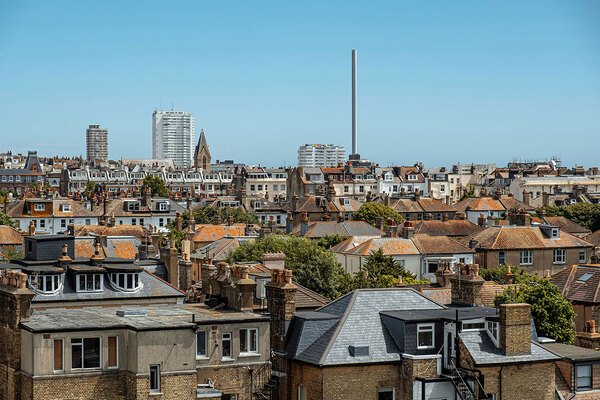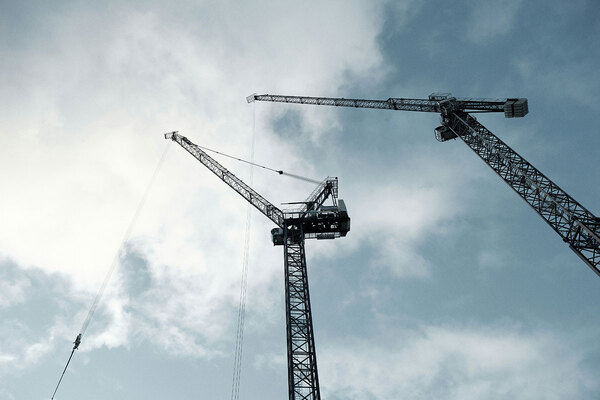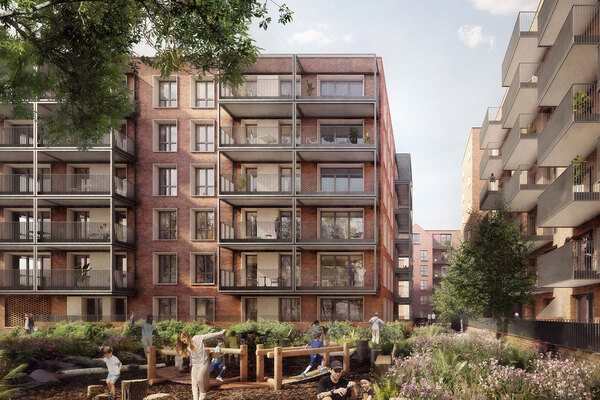Large association to make shared owners pay full cladding bills if it can’t recoup costs
Shared owners living in a major development in central London have been told by their housing association that they could be hit with the full cost of removing dangerous cladding, even if they own just a small percentage of their home.
Shared owners living in the 325-home City Wharf development in Hoxton have been told by their association, A2Dominion, that they could be liable for 100% of the costs of removing timber cladding from the block even if they own as little as 25% of their home.
A2Dominion said in a letter that while it “does not want to pass on the costs to leaseholders”, shared owners and leaseholders would be billed if it was unable to recoup any of the costs from developers and insurers or it could not access funding from the government’s new £1bn Building Safety Fund.
A letter sent last week to residents from the association’s head of leasehold said: “It has been decided that A2Dominion will not reduce the charges should any costs in relation to these works be recovered from those with shared ownership leases.”
The decision by the association has led to criticism by residents, who fear that they could be facing bills in the tens of thousands of pounds.
Scott Jenkins, a shared owner at City Wharf, said: “The fact that they have denied our request to pay for the cladding proportionally is an absolute killer, it moves from something you don’t lose sleep over to something that will cripple you financially.
“Coronavirus makes it extremely worrying, there are definitely people in flats that will drop income as a result of this.
“There is a big downturn coming, and we are really worried about the impact of that.”
In a response to Inside Housing, A2Dominion said that it would continue to do “everything it could to avoid charging leaseholders and shared owners” but that the charges would be in line with the terms of their lease.
Under leasehold law, leaseholders are liable to pick up major works bills, including for fire safety work, through their service charges. Shared ownership leases require shared owners to pay 100% of service charges for a block regardless of what percentage of the property they own.
A2Dominion said that due to the benefits of shared ownership, including a subsidised rent agreement for owners, it was upholding the decision to make the City Wharf residents pay.
The government has repeatedly said that building owners should not to pass on the costs, with former housing secretary James Brokenshire saying there was “a moral imperative” for landlords to not leave leaseholders to cover the cost.
In many cases so far, housing associations have agreed to cover the costs of re-cladding and fire safety work for shared owners and leaseholders.
Nevertheless, with the increasing number of buildings found to have unsafe cladding in need of removal under new government guidance, associations are increasing looking at potentially pushing costs onto its leaseholders.
In November, Helen Evans, the chair of the G15 and chief executive of Network Homes, warned that associations may not be able to cover all fire safety costs and could bill leaseholders for the work.
A2Dominion said it was taking a “proactive approach to recovering costs” by recouping costs from developers and insurers if defects are found and applying to the government’s new Building Safety Fund.
The £1bn fire safety fund was launched by chancellor Rishi Sunak during his Budget speech last month, with the aim of funding the removal of non-aluminium composite materials from private and social housing blocks. However, there are concerns the fund will cover only a fraction of the buildings covered in dangerous materials.
Leaseholders living at City Wharf have said they are frustrated at by being “kept in the dark” by A2Dominion over the costs, and added that since last summer they had asked the association on several occasions if they would cover the costs but did not receive a clear answer.
As a result of the dangerous timber cladding, leaseholders are also unable to sell their homes due to banks being unwilling to lend on blocks with dangerous cladding.
Leaseholders have raised the question of being able to sublet their properties and rent it out until the cladding is removed.
Under shared ownership leases, leaseholders are unable to rent out properties but these rules have been relaxed by some associations, including L&Q, as a result of fire safety issues and the inability to sell.
In the letter A2Dominion said it is considering its policy around subletting for shared-owners and would make a decision in due course.
A2Dominion's response in full
Andrew Evans, Executive Director (Operations), A2Dominion, said: “We will continue to do everything we can to avoid charging leaseholders and shared owners for remedial work and will only do so as a last resort, in line with the terms of their lease. The lease also states that, even in the event of a shared ownership agreement, residents will be responsible for the whole costs of any remedial works where these cannot be recovered elsewhere. Due to factors such as the additional benefits of shared ownership, including a subsidised rent agreement, we reserve the right to uphold this.
“While we appreciate some individuals will be disappointed with the decisions we have to make regarding their own properties, as a housing association with a social purpose we have to ensure that we are doing all we can to provide services for everyone in our 38,000 properties – which include care services for vulnerable people.
“To do this, we must adopt an approach that is fair and equitable to all our residents, while ensuring that we are able to continue to deliver services and provide new homes – especially given the external pressures that are heightened by the coronavirus crisis. We appreciate that these pressures are also keenly felt by our residents, which is why will exhaust all other options before we consider passing on the costs of any works.
“We are taking a number of proactive steps to recover these costs. For example, following the recent budget announcement of extra funding to cover other cladding types as well as aluminium composite, we hope to be able to apply for assistance through the Building Safety Fund for the cladding elements on City Wharf. "Additionally, should investigations reveal latent defects in the building work we will seek to recoup costs from the developer or through insurers.”
